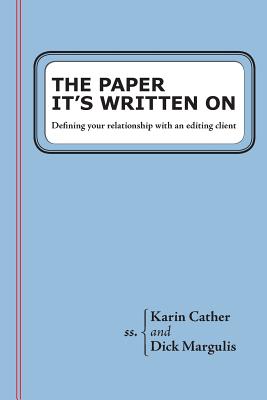Have a Contract!

Editor and copywriter Karin Cather co-wrote the book on contracts for editorial relationships. She reminds us why it’s essential to have one for all our clients:
Disclaimer: You and I, dear reader, do not have an attorney–client relationship. A one-hour consultation with a media lawyer is recommended when drafting any sort of service agreement. One can never consult an attorney too early.
Most people just want to deliver what they promised and pay for what they get. Disagreements between parties who have to pay and parties who have to deliver come about when each side doesn’t know what they are getting out of the bargain and when. This is the main function of a service agreement—to prevent conflict. To that end, a strong service agreement is very specific about scope of work, so not just “copyedit” or “line edit,” but what, exactly, that means. This is because even editors disagree on what is what. A service agreement addresses most of what can go wrong during the life of the relationship—for example, corrupted files, late installments, plagiarism, and, if there is a total breakdown of the relationship, a termination clause. It also requires an author to pay a deposit, then installments, and only after payment is complete will the editor deliver a manuscript.
Many editors are requested to sign nondisclosure agreements. Here is some language that I find essential in one:
Editor may disclose Confidential Information to third parties under any one or more of the following circumstances: (i) upon the express written consent of Client; (ii) as required by law; (iii) to notify the appropriate authorities or parties of any imminent risk to the safety or property of Editor, Client, or third parties; or (iv) for use in Editor’s defense to any cause of action arising from this Agreement.
Some editors have long, successful careers relying only on an email chain. But a cursory romp through any editors’ forum (and even any authors’ forum!) will reveal problems with editor–author relations issues. You’re a business owner and you should have a contract.
Go forth and prosper!
Here are a few resources for more information:
The Paper It’s Written On: Defining Your Relationship with an Editing Client, a book by Dick Margulis and Karin Cather
The Fine Print: Creating an Editing Contract (EFA webinar recording)
The EFA’s useful resources for editorial freelancers
An EFA booklet, Contracts Demystified: A Guide for Editors and Authors, by Sarah Dubel

